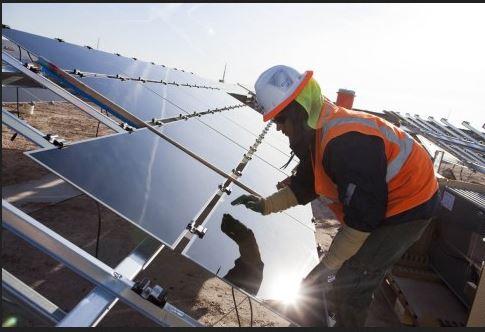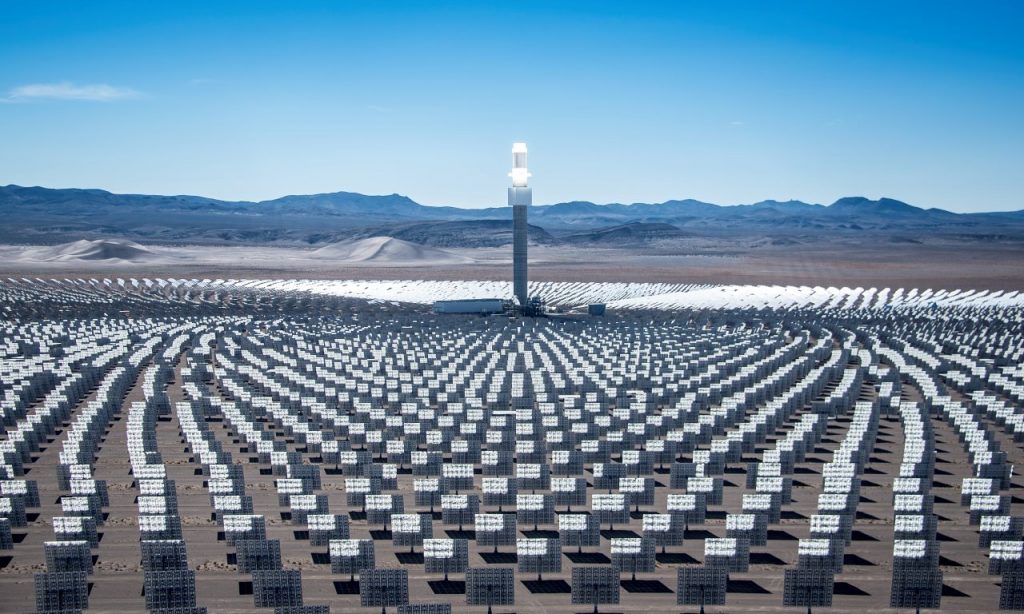A start-up that helps rural Bangladeshi owners of home solar power systems trade their surplus electricity with their neighbours won an international award for climate change innovation Thursday.
SOLshare, set up in 2014, aims to stem the waste of more than a billion dollars in energy each year when home battery storage systems connected to solar panels reach capacity and excess solar power generated goes unused, its officials said.

Bangladesh is one of the world’s leaders in solar home systems for off-grid communities, with more than 5 million of the systems now in place.
“We have created a device that can share the surplus energy and help people earn money for it,” said Salma Islam, a project manager at SOLshare, based in Dhaka.
Using an electronic unit installed alongside their solar system, owners can transfer excess energy into a local power “microgrid” created with other SOLshare users, allowing those who need more power to buy it and cutting waste.
“If someone puts the device on automode it will automatically start selling energy once its (battery is) full,” Islam said.
Homes that can’t afford to buy solar panels also can buy electric power through the system, which Thursday won an award for innovation in energy access from Ashden, a British charity that works to scale up climate-smart energy solutions.
Bangladesh’s government, which aims to boost its use of renewable energy to 10% of electrical power demand by next year, said it saw SOLshare’s device as a useful part of the push.
“We welcome this,” said Mohammad Alauddin, chairman of Bangladesh’s Sustainable and Renewable Energy Development Authority, lauding the company’s grassroots focus.
He said the country is exploring a range of ways to improve access to solar energy, from adding more rooftop panels to installing some solar panels on floats on water bodies.
Bangladesh, however, also plans to build new coal-based power plants over the next two decades, which are likely to dramatically boost its dependence on highly polluting coal, according to environmental groups.
The country’s main source of energy is natural gas but reserves are dwindling, according to its government.
CHEAP SOLAR
SOLshare officials said they have set up 27 “microgrids” in communities that have installed their devices across Bangladesh. A majority of their roughly 3,000 customers – most of them farmers – earn less than $5 a day, they said.
Previously, many users who couldn’t afford a basic solar home system relied on polluting and expensive fuels like kerosene or on diesel generators, the company said.
SOLshare has helped cut use of such fuels, while expanding access to electricity for those who lack it, according to Ashden.
“SOLshare is a true pioneer, creating neighbourhood networks of energy. Their peer-to-peer solar grid system means that no solar energy is wasted. It’s putting electricity into … hard-to-reach rural communities,” said Harriet Lamb, the CEO of Ashden.
The coronavirus pandemic has forced thousands of Bangladeshis to return to their villages from cities, causing a spike in electricity use in some of SOLshare’s microgrids, company representatives said.
To help ease the burden on hard-hit families, the company decided to temporarily remove the small surcharge normally levied on sellers of power, Islam said.
With some charitable funding the company also has supplied medical packages to rural communities and plans to deliver sewing machines to garment workers who lost their city jobs, she said.
The company is also in talks with the United Nation’s refugee agency to create similar microgrids in the world’s largest refugee settlement in Cox’s Bazar, home to more than 800,000 ethnic Rohingya refugees who fled persecution in Myanmar.
SOLshare officials said they hope to scale up their business to allow at least 100,000 Bangladeshis to share solar power over the next five years.
The aim is to help people “live by using what is already there” and to harness “existing and underutilised resources”, said Sebastian Groh, the CEO of SOLshare.
One of those who has benefitted from the technology is Bimal Krishna Das, 40, whose said his pharmacy business in Barisal, about 250 kms from Dhaka, had taken a hit from the coronavirus pandemic.
By selling electricity, he said, he was able to raise extra funds he desperately needed.
“It’s such a relief to have some extra money in your pocket during this crisis,” he said.

